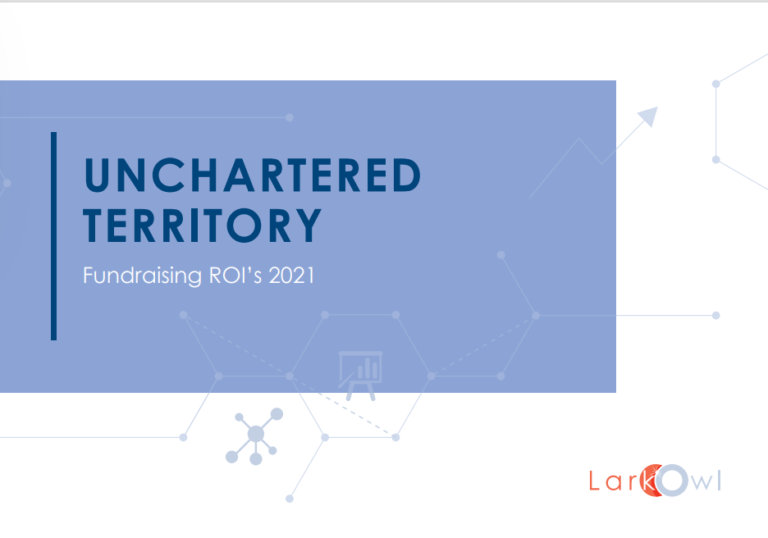Fundraising ROI largely held up in pandemic year, study shows

ROI across fundraising activity largely held up in 2020/21, and was higher in a number of areas than the previous year, according to a study of charities by LarkOwl.
LarkOwl’s third benchmarking study, Unchartered Territory: Fundraising ROI’s 2021, collates data on the ROI for different types of fundraising to determine the average return on investment. Results were gathered from 45 charities during June and July 2021 – up from 39 participating organisations last year, with ROI expressed as the sum raised in return for every £1 spent on a fundraising activity.
Across all types of fundraising, LarkOwl found that the average ROI in 2020/21 was £8.61, compared to £7.16 in 2019/20. A third of respondents had an ROI of £10 +, compared with a quarter of the previous year’s 39 respondents.
Advertisement
ROI for charities with an income of £1m+ was £8.07 across all types of fundraising, up from £6.72 the previous year, while for those under £1m it was higher, at £9.27 – up from £7.77.
ROI was also up from trusts and foundations, at £10.69, individual giving at £8.82, and community at £5.09. Areas where ROI fell were grants, major donors, corporate, and events. Digital was seen as a vehicle for giving spanning all areas of fundraising rather than a stand-alone category.
- The biggest proportion of responding organisations (56%) had an income in 2020 between £1m-£14.9m
- 26% had an income of £500k-£999,999
- 45% were national charities
- 24% from the south east, and 14% from the south west.
- 7% primarily operate in the Midlands, 3% each in the north west, Scotland, and internationally, and 1% in Wales.
- The biggest proportion, 41%, work to offer relief to those in need, followed by 23%, which work to advance health or save lives
Questioning respondents on their experiences last year, the survey found that many felt empowered and excited by the changes in fundraising practice that were necessitated by the pandemic, with a sense of optimism.
The study also found:
- A better understanding of the importance of building genuine and authentic relationships with supporters
- A fast-tracking of innovation with a greater range of fundraising tools and tactics now available than pre-pandemic
- A greater awareness of the need to take wellbeing seriously
- And, while most respondents did well from trusts and grants, these same respondents are now concerned about how to maintain momentum and manage expectations in a world where emergency funds are no longer available.
New questions for 2021 included how engaged senior leadership teams and trustees were in fundraising on a scale of 1-5. The majority of respondents (63%) scored their senior leadership team as a 4, quantified as being supportive and engaged, attending events and donor visits and meetings, and acting as an advocate with clear guidance. 24% gave them a 5, meaning they see them as active in making introductions, willing to open their black books, donors, and event hosts and advocates.
Trustees however were seen as less engaged, with 50% scoring them as a 3 – only mildly interested, responding to occasional meeting requests, responding to requests for information within a reasonable timeframe, and occasionally attending events. 36% gave their trustees a 4 here, and only 7% gave a 5.
The full report can be downloaded from the LarkOwl site.





